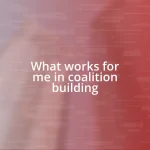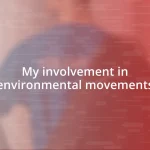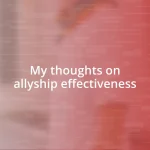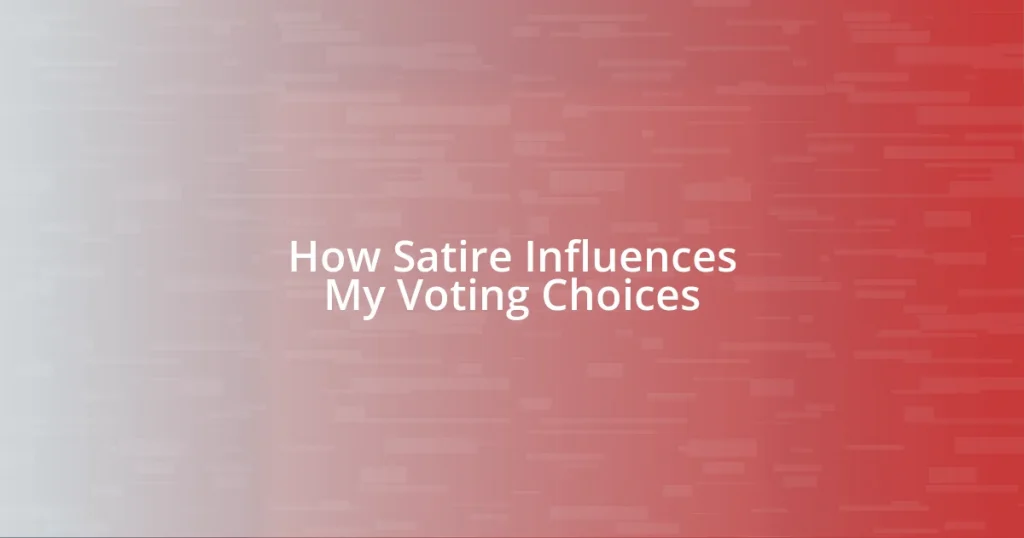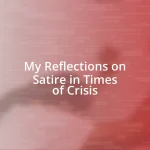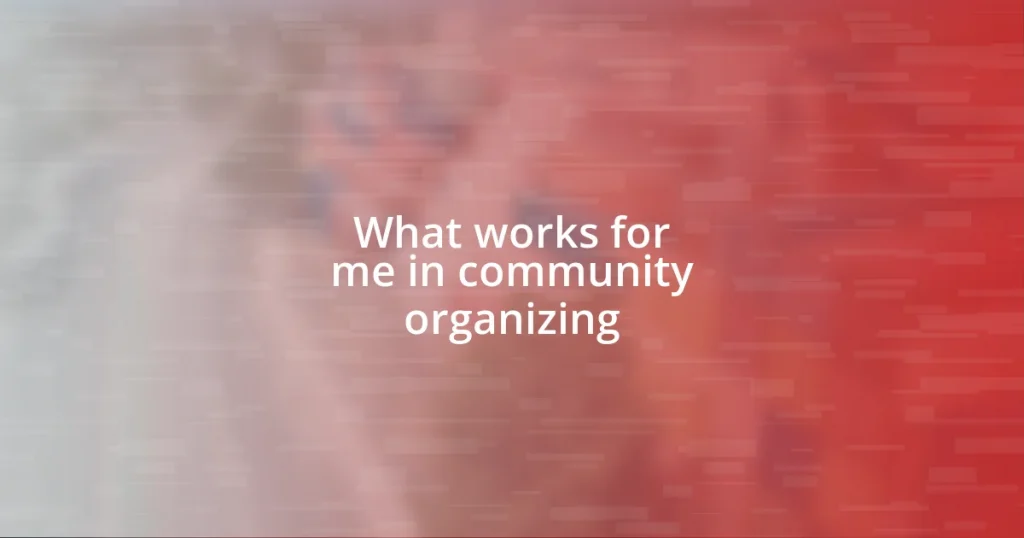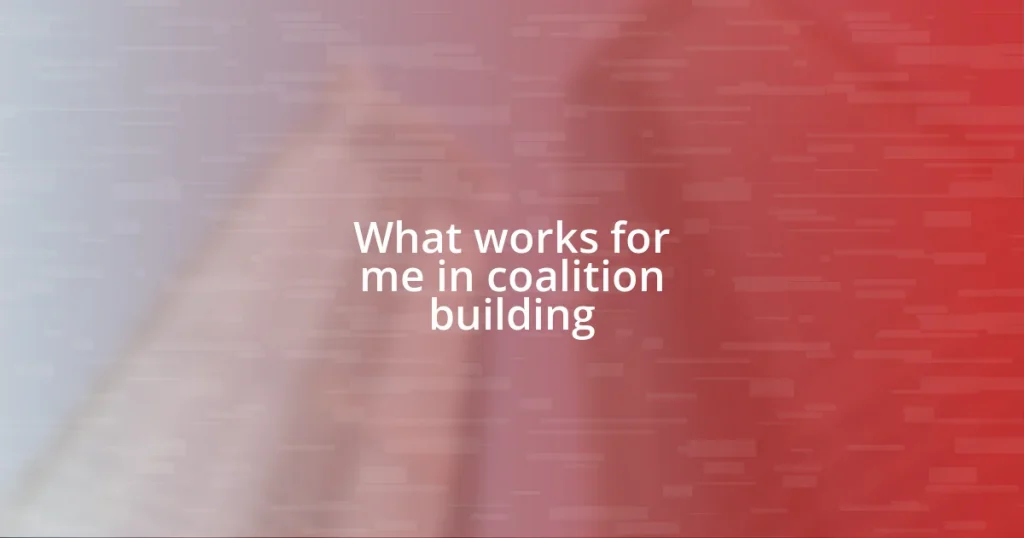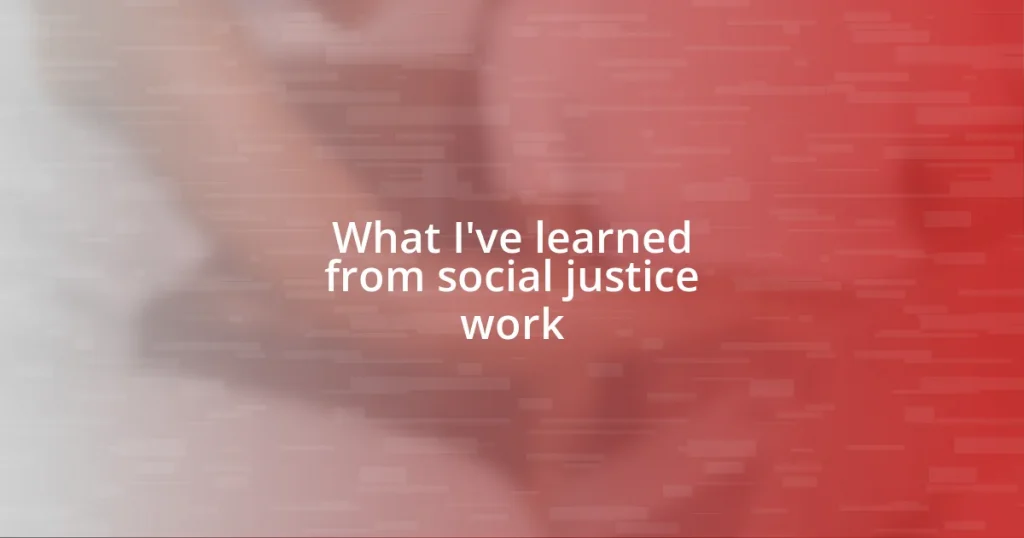Key takeaways:
- Satire encourages critical thinking and challenges perceptions, prompting voters to question political claims and beliefs.
- Humor in satire can simplify complex political issues, but may also lead to oversimplification or reinforce biases without careful examination.
- Engaging with satire requires a balance between entertainment and critical analysis to make informed voting decisions that go beyond mere comedic interpretations.
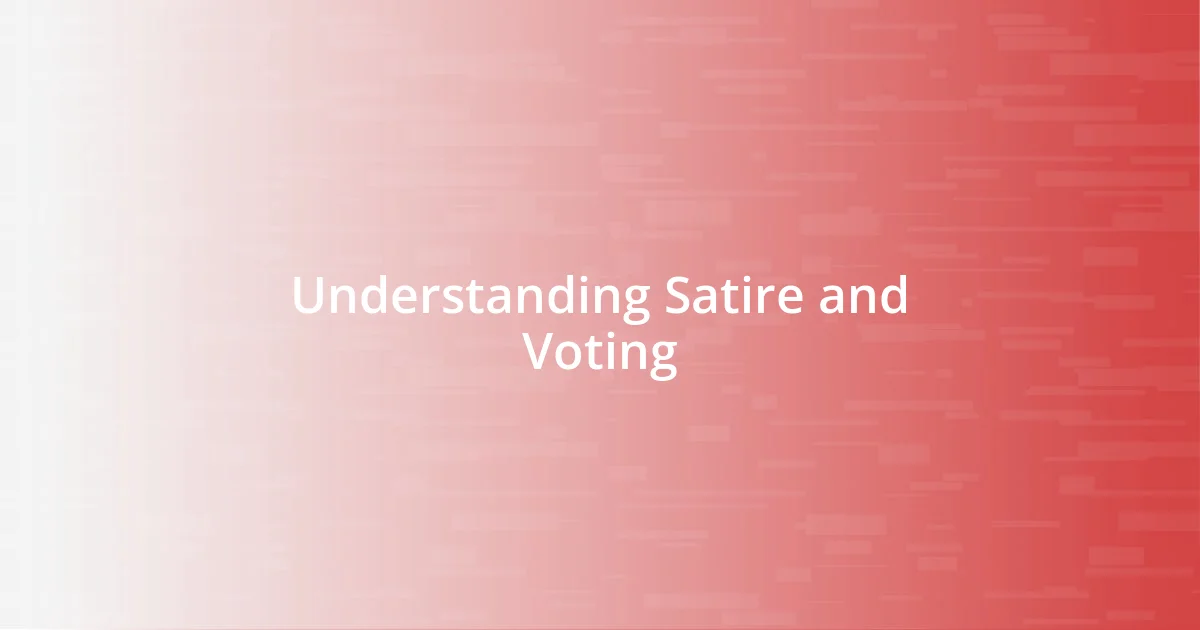
Understanding Satire and Voting
Satire offers a unique lens through which we can examine political issues and candidates. I remember a time when I watched a satirical news segment that starkly highlighted a politician’s contradictions. It not only made me laugh, but it also forced me to reevaluate my perceptions of them—how often does humor reveal uncomfortable truths about those who seek our votes?
When I encounter satirical content, I often find myself questioning my beliefs. Why do we sometimes blindly trust what we hear? Satire encourages critical thinking; it compels us to investigate claims rather than passively accept them. This makes it not just a tool for entertainment, but a vital part of my voting process.
Moreover, satire taps into our emotions, transforming complex political jargon into something relatable. I vividly recall a sketch that satired healthcare policy—it struck a chord deep within me, making me reflect on my values and priorities. Isn’t it fascinating how a simple joke can motivate us to explore serious issues that affect our lives?
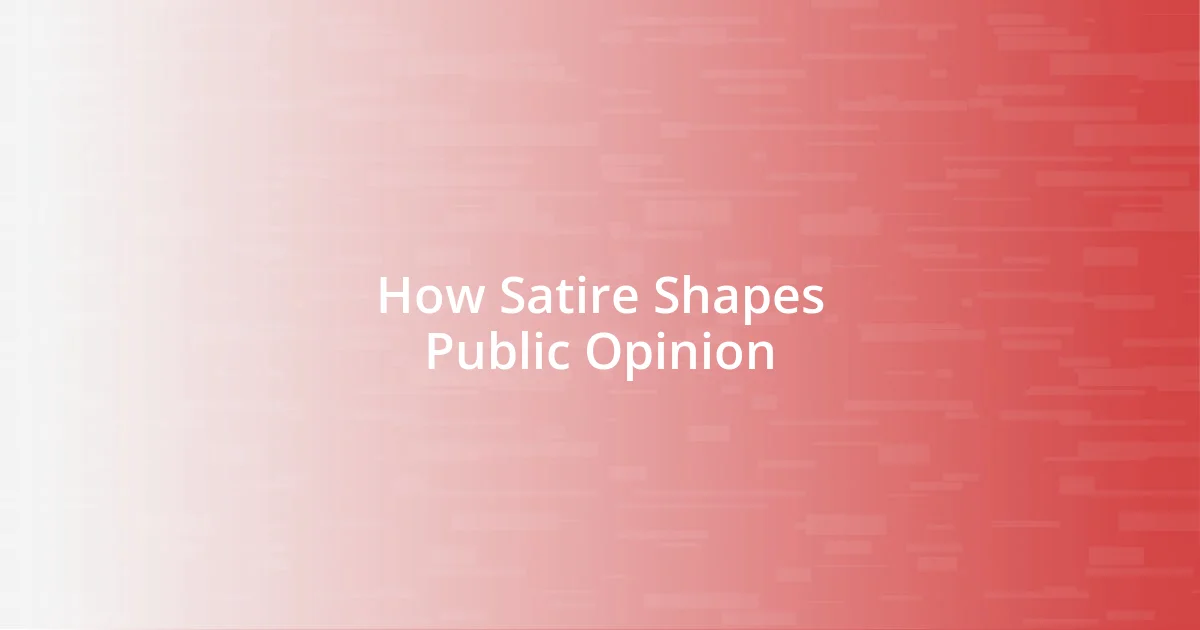
How Satire Shapes Public Opinion
Satire plays a powerful role in shaping public opinion, often framing political discourse in a more accessible manner. I can recall a particularly biting roast of a politician’s policy flip-flopping that left me both laughing and reflecting on the absurdity of it all. This blend of humor and critique opens my eyes to hypocrisy and encourages me to consider the implications of my voting choices without tuning out.
- It highlights contradictions in political messaging.
- It promotes skepticism, prompting me to dig deeper rather than accept things at face value.
- Satire distills complex issues into relatable narratives, making them easier to discuss and understand.
- It fosters community among viewers who share similar sentiments, creating a collective dialogue around electoral decisions.
The impact of satire extends beyond individual reflection; it cultivates a culture of awareness. I remember discussing a satirical skit over coffee with friends, and how it not only sparked laughter but ignited a debate about the very policies we appeared indifferent to. Those moments remind me how humor, though lighthearted, can provoke serious conversations and influence the collective mindset regarding electoral processes.
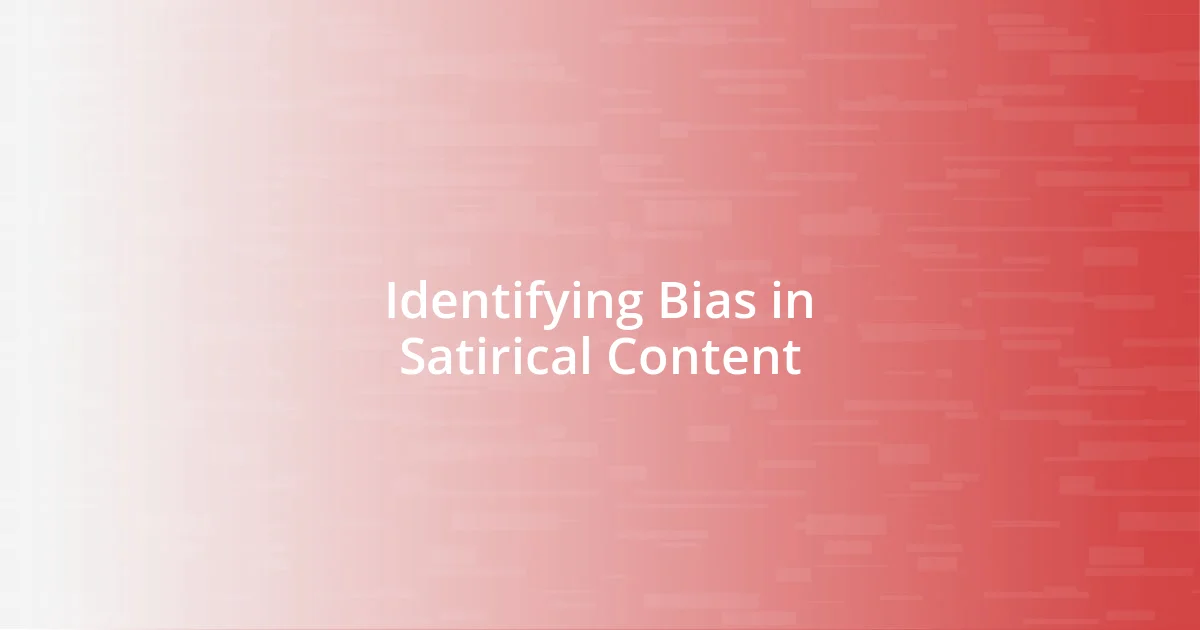
Identifying Bias in Satirical Content
Identifying bias in satirical content requires a keen eye and an understanding of the creator’s perspective. One time I watched a satirical segment that seemed to favor one political ideology while lambasting another. It struck me how humor can sometimes come wrapped in a biased package, subtly swaying my opinions without me even realizing it. Recognizing this bias allows me to appreciate the humor while also questioning its underlying message.
As I navigate through various satirical media, I notice how certain jokes often rely on stereotypes or exaggerations. For instance, I encountered a parody that played into negative tropes about a specific political group. This made me reflect: is the content truly funny, or is it just perpetuating misconceptions? It’s a fine line, and often, the most humorous commentary can be misleading if we’re not cautious.
When evaluating satire, I always ask myself: who benefits from this portrayal? Take, for example, a popular satirical show that frequently targets one political party. While I enjoy the comedic take, I find myself questioning its intentions. My experience in dissecting this type of content has significantly shaped my voting decisions, illuminating biases I might have missed during the political season.
| Feature | Description |
|---|---|
| Identifying Bias | Understanding the creator’s perspective and any underlying motivations. |
| Stereotypes | Recognizing the use of stereotypes and exaggerations that may sway perceptions. |
| Evaluating Intent | Assessing who benefits from the portrayal and the potential impact on public opinion. |

Evaluating Satire’s Impact on Choices
The influence of satire on my choices is often unexpected yet profound. I remember a time I stumbled across a satirical video that highlighted the absurdity of a candidate’s promise. While I laughed at the cleverness, it also prompted me to think: how often do we accept unrealistic promises in politics? That moment sharpened my skepticism and ultimately guided my decision at the polls.
When I watch a satirical show that critiques political figures, I often find myself nodding in agreement, but it’s important to analyze why. I think back to a time when a comedian mocked a particularly outrageous political stunt—I felt entertained, but a voice in my head asked if this ridicule was justified. Was it helping me make an informed choice or simply confirming what I already believed? In moments like these, I realize that while satire can entertain, it also necessitates critical thinking about the information presented.
Navigating through the landscape of satire means being aware of how it can subtly influence not just my opinion but the opinions of those around me. I recall engaging in a heated discussion with friends after watching a satirical take on an election. We laughed, but as we dissected the jokes, the underlying messages started to unfold. I wondered, were we laughing to mask our discomfort with the political climate? Such reflections allow me to appreciate the humor while questioning how it may shape our understanding of candidates and their policies.
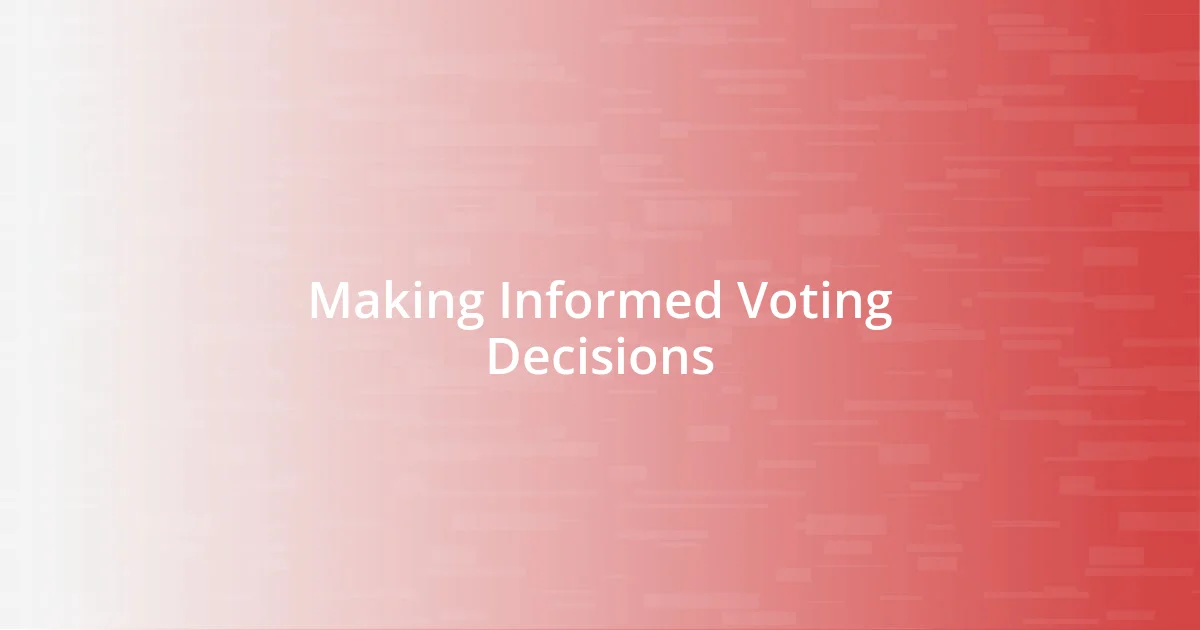
Making Informed Voting Decisions
Making informed decisions when voting is incredibly crucial in today’s political climate. I remember feeling genuinely conflicted during an election after catching a segment on a satire show that dissected a candidate’s stance on major issues. In that moment, I realized how satire can simplify complex policies into digestible bits but also risk oversimplifying the truth. It made me think: how often do I rely on humor to understand the weight of a candidate’s proposals?
As I dove deeper into the political landscape, I discovered that satire can shed light on key issues while also feeding into preconceived notions. One evening, I found myself in a lively debate with friends after watching a brilliantly crafted skit. We laughed at the absurdity of the situation depicted, but I couldn’t help but ponder: were we laughing out of genuine understanding or just following the crowd? This introspection was pivotal; it made me aware of how easily satire can influence my emotional responses and, subsequently, my voting choices.
I’ve learned that the humor in satire often conceals layers of truth that deserve careful examination. There was a point when I felt a strong pull to acknowledge the issues raised by a satirical take on our local representatives. While the laughter came easily, I felt a nagging urge to dig deeper and connect the dots between the laughable content and reality. I began to realize that informed voting means not just accepting comedic portrayals but also challenging them to expand my political awareness and choices.
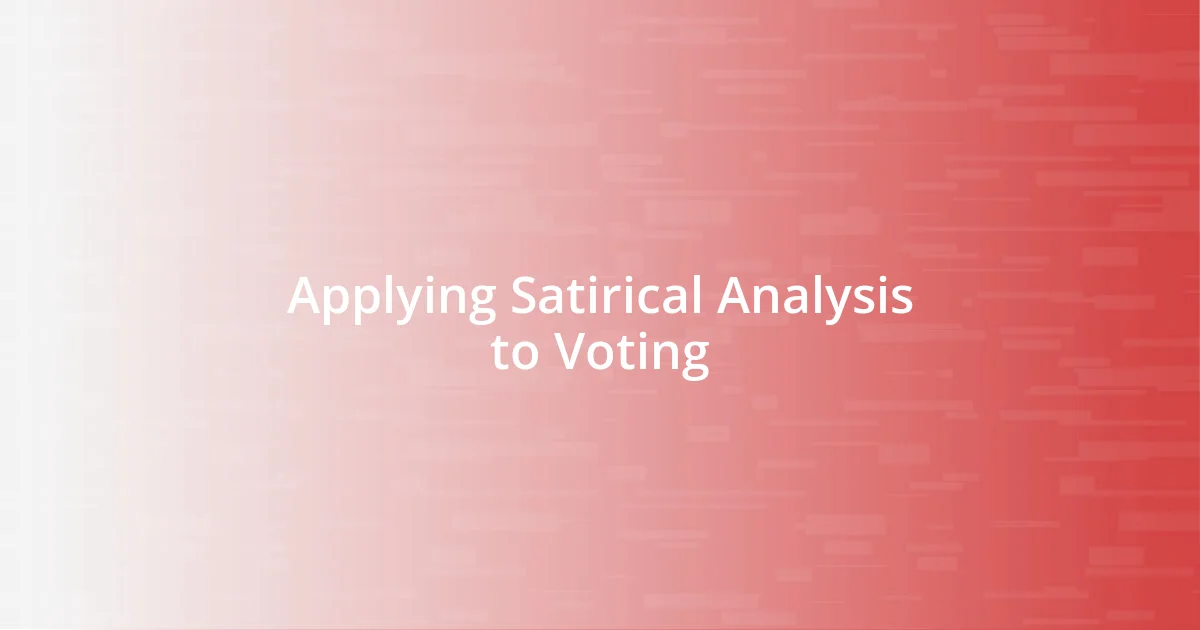
Applying Satirical Analysis to Voting
When I consider the impact of satire on my voting, I often think about an unforgettable moment during a live comedy show. The comedian’s take on a local policy left the audience in stitches, but later, I found myself uneasy. Did the laughter distract me from understanding the potential consequences of that policy? That question lingered, reminding me that humor can be a double-edged sword—it can clarify or obscure.
Reflecting on those satirical moments, I sometimes feel a tug-of-war between entertainment and reality. For instance, after watching a sketch that exaggerated a candidate’s blunders, I had a conversation with a friend that spiraled into a deep dive into who that candidate really was. While we chuckled at the satire, I wondered if we were merely reinforcing our biases instead of genuinely scrutinizing the candidate’s qualifications. How do we balance the humor with a thorough evaluation of their policies? It’s a tough line to walk, but it’s essential to remain vigilant.
In my experience, looking beyond the laughs has become crucial. I remember sifting through various satirical takes on the leading candidates one election season. While some made me chuckle, I felt a growing responsibility to unearth the facts behind those jests. Could I stand confidently at the polls if I relied solely on comedic interpretations? My answer became clear—I needed to filter satire through a lens of critical analysis, ensuring my vote is informed, rather than just a product of a punchline.

